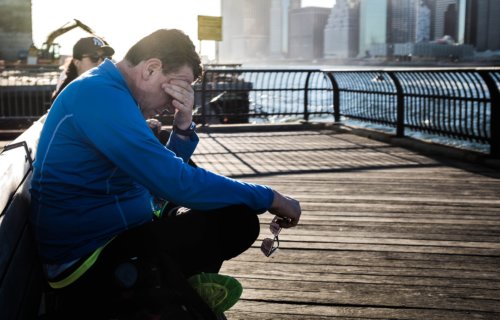COLUMBUS, Ohio — Here’s a pretty good reason to make sure you’re getting enough rest and relaxation in your life. More than a third of people are walking around with the same symptoms as concussion due to stress and lack of sleep, suggests a new study.
A survey of more than 31,000 people shows that insufficient sleep, mental health problems, and stress were the causes of a whole host of symptoms doctors are used to seeing in head injury patients. Symptoms of what doctors call post-concussion syndrome (PCS) range from persistent headaches, dizziness and anxiety, to insomnia and loss of concentration and memory.
While 27 percent of people report having several of these symptoms, between one-half and three-quarters say they experience at least one. The most common symptoms are fatigue, low energy and drowsiness. Yet despite their findings, researchers believe the number in the general population could be much higher.
The study, funded by the National Collegiate Athletic Association and the US military, was designed to improve care for athletes and soldiers who suffered concussions. A total of 2,039 military service academy cadets and 18,548 student athletes were surveyed.
“The numbers were high, and were consistent with previous research in this area, but it is quite shocking,” says study lead author Dr. Jaclyn Caccese, assistant professor in The Ohio State University School of Health and Rehabilitation Sciences, in a statement. “These are elite athletes who are physically fit, and they are experiencing that many symptoms commonly reported following concussion. So looking across the general population, they’d probably have even more.”
Is it a concussion, or something else?
Researchers hope their results will help doctors figure out which symptoms are due to head injuries and which had other causes.
“When a patient comes into a clinic and they are a month or more out from their most recent concussion, we need to know what symptoms they were experiencing before their concussion to know if their symptoms are attributable to their concussion or something else,” adds Caccese. “Then we can start treating the concussion-related symptoms to hopefully help people recover more quickly.”
For both military cadets and athletes, sleep problems — particularly insufficient sleep the night before the test — and mental health problems had the strongest links to concussion-like daze effects. Meanwhile, struggling academically, migraines, ADHD, and depression also contributed to PCS symptoms.
While some symptoms like dizziness or sensitivity to light are closely connected to concussion, others, including fatigue, drowsiness and even headaches, can be linked to a variety of causes, leaving doctors puzzle–solving when confronted with a new patient.
“Perhaps we can create a battery of symptoms more specific to concussion,” suggests Caccese. “This hopefully not only shows clinicians that we need to consider how people would have presented before injury, but also provides some normative data so they can interpret other patients. We really don’t know a lot about why people have persistent symptoms, and it seems to be very variable. So we’re trying to understand this better to help predict who will have a prolonged recovery, and who will not.”
The study was conducted by the Concussion Assessment, Research and Education (CARE) Consortium. It’s published in the journal Sports Science.
SWNS writer William Janes contributed to this report.
